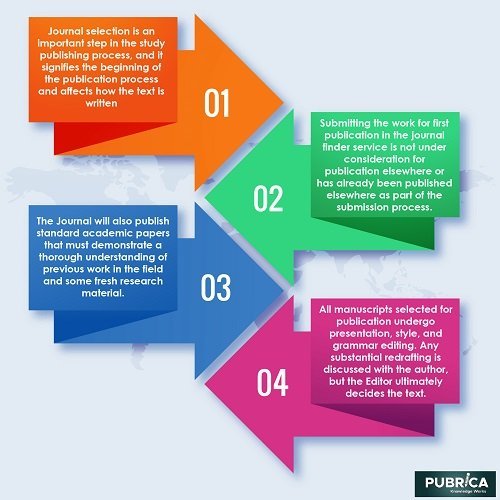
Bipolar and major depressive disorder: a meta-analysis of biotechnology genome-wide association data
May 16, 2022
What to Know Before Writing a Biosimilar Grant Proposal
May 30, 2022In brief
Journal selection is an important step in the study publishing process, and it signifies the beginning of the publication process and affects how the text is written. Failure to follow a journal’s selection services might result in a submission being rejected. To ensure that the document, it is necessary to read the Instructions to Authors or Author Guidelines. Details regarding the Journal’s scope, target readership, submission process, and many other topics are included. The objective of this blog was to critically examine Generic Medicines journals to submit a manuscript by Lidia Mallo and Pieter Dylst (2012) of the Belgian Research Centre for Pharmaceutical Care and Pharmaco-Economics. In reality, these are some of the most important factors to consider when choosing a journal.
Introduction
Submitting the work for first publication in the journal finder service is not under consideration for publication elsewhere or has already been published elsewhere as part of the submission process. While their manuscript is being peer evaluated for prospective publishing in the Journal, authors should not submit an updated version on the preprint server. If the paper is accepted for publication, the author may re-use their work as long as the author archiving policy of the Journal is followed.

Articles types
Case studies, novel techniques, market evaluations, regulatory and legal updates, empirical research, and other material relevant to the generic pharmaceutical sector are all welcome in the Journal of Generic Medicines. They don’t have to show in-depth knowledge of earlier academic work on the topic, and they can be more descriptive (and less critical) of current business practice. The Journal will also publish standard academic papers that must demonstrate a thorough understanding of previous work in the field and some fresh research material. Every document must have obvious implications for business.
An abstract of roughly 200 words should be supplied. You must also provide a list of around six essential terms. Papers should be at least 2,500 words long and 4,000 words long (but shorter papers will be considered). Typewritten submissions should be double-spaced on A4 or US letter paper.
Editorial policies
The reviewer’s and author’s names are concealed in the scientific journal finder as part of the Journal of Generic Medicines’ double-blind review procedure.
All manuscripts selected for publication undergo presentation, style, and grammar editing. Any substantial redrafting is discussed with the author, but the Editor ultimately decides the text. You may be required to supply the names of peers who might be called upon to assess your article as part of the submission process Journal Selection Service for publishing a research paper. Experts in their disciplines who can objectively appraise the text should be recommended as reviewers. When proposing reviewers, please be conscious of any potential conflicts of interest.
- Your contribution should be completely unknown to the reviewer.
- The reviewer should not have worked with any of the writers recently.
- Proposals for reviewers from the same institution as any authors are prohibited.
Authorship
Only when all contributing authors have granted their approval should papers be submitted for consideration. According to those submitting papers, all people whose work contributed to the article should be credited as contributing authors.
Acknowledgements
All contributions that do not match the authorship standards should be acknowledged in an Acknowledgements section. An individual who gave merely technical assistance or a department chair who supplied only general support are examples of individuals who may be recognised.
Writing assistance
Individuals who assisted with writing, such as from a professional communications firm, are not considered writers and should be acknowledged in the Acknowledgements section. Any writing help must be disclosed, including the individual’s name, firm, degree of involvement, and the organisation that paid for it. It is not necessary to reveal whether or not you have used language polishing services.
Research ethics and patient consent
Medical research involving human subjects must adhere to the Declaration of Helsinki of the World Medical Association. All papers reporting human and animal studies must state in the methods section that the relevant Ethics Committee or Institutional Review Board provided support, according to the ICMJE Recommendations for the Conduct, Editing, Reporting, and Publication of Scholarly Work in Medical Journals. Please double-check that you’ve included the review committee’s entire name and institution and the approval number.
- Preparing your manuscript for submission
- Formatting
- Artwork, figures and other graphics
- Supplemental material
- Reference style
- English language editing services
- Submitting your manuscript
Please ensure that you have secured all required permissions from copyright holders before duplicating any previously published graphics, tables, figures, or comprehensive statements.
Conclusion
Proofs will be sent to the appropriate author via Pubrica Edit or email, and errors should be corrected immediately or submitted to us as soon as possible. Authors should double-check their proofs. Check that all author information, including names, affiliations, sequence, and contact information, is right and that any funding and conflict of interest disclosures are accurate. Please keep in mind that if the author list changes at this point, all writers will be asked to fill out and sign a document authorising the change.
About Pubrica
Pubrica meets summit standards and protocols of journal publishing ethics in every single phase of services and processes. Pubrica adheres to authorship guidelines drafted by the International Council of Medical Journal Editors (ICJME), and the scope for services will be routinely updated as per the Committee of Publication Ethics (COPE) and International Society of Medical Publication Professionals guidelines (ISMPP).
References
- European Generic Medicines Association. Patent-related barriers to market entry for generic medicines in the European Union. A review of weaknesses in the current European patent system and their impact on the market access of generic medicines. 2008. Brussels, Belgium: European Generic Medicines Association.
- Dylst, Pieter, Arnold Vulto, and Steven Simoens. “Overcoming challenges in market access of generic medicines in the European Union.” Journal of Generic Medicines 9.1 (2012): 21-28.
